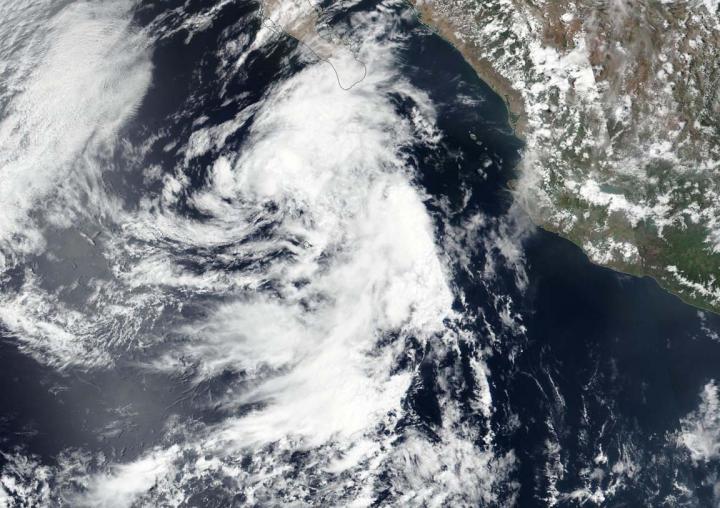
IMAGE: NASA-NOAA’s Suomi NPP satellite provided forecasters with a visible image of Tropical Depression 4E on June 29, 2020. The depression was located southwest of the southernmost tip of Baja California,…
view more
Credit: NASA Worldview, Earth Observing System Data and Information System (EOSDIS)
Tropical Depression 4E formed late on June 29 and it is forecast to become a remnant low-pressure area by the end of the day on June 30. NASA-NOAA’s Suomi NPP satellite provided forecasters with an image of the depression, located just southwest of the southern tip of Mexico’s Baja Peninsula.
Tropical Depression Four-E (TD4E) formed on June 29 at 11 p.m. EDT (June 30 at 0300 UTC). It maintained depression status on June 30 and is forecast to weaken.
Visible imagery from NASA satellites help forecasters understand if a storm is organizing or weakening. The Visible Infrared Imaging Radiometer Suite (VIIRS) instrument aboard Suomi NPP provided a visible image of TD4E late on June 29 that showed it remained disorganized and lop-sided. The imagery showed that the bulk of clouds and precipitation was displaced more than 90 nautical miles northeast of the center of circulation. Clouds associated with the depression were streaming over the southern tip of the Baja Peninsula.
At 5 a.m. EDT (0900 UTC) on June 30, NOAA’s National Hurricane Center (NHC) noted the center of Tropical Depression Four-E was located near latitude 20.6 degrees north and longitude 113.2 degrees west. That is about 265 miles (425 km) southwest of the southern tip of Baja California, Mexico. The estimated minimum central pressure is 1005 millibars.
Maximum sustained winds had decreased to near 30 mph (45 kph) with higher gusts. The low should gradually spin down during the next day or two over cool waters while it moves slowly northwestward.
NHC forecasters said the system is forecast to become a remnant low later today, and degenerate into a trough of low pressure in a couple of days.
Tropical cyclones/hurricanes are the most powerful weather events on Earth. NASA’s expertise in space and scientific exploration contributes to essential services provided to the American people by other federal agencies, such as hurricane weather forecasting.
###
TDnews














